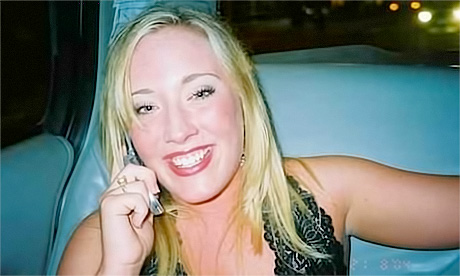Living two lives breaks you.
Having tried to live as a Catholic campus minister and as a lesbian woman, my authentic self, piece by piece, slowly broke apart.
I was asked to hide, to “be discreet” about my same-sex marriage, and later was offered a severance package with an agreement to remain silent about the discrimination that I felt took place.
I was shocked and couldn’t help but feel shame and unworthiness.
At first, I thought I could be an “undercover Catholic,” sacrificing myself for the good of my students.
As a liturgist, I wanted to give them the experience of a radically loving and accepting church — the church I desired, but didn’t experience.
Being asked to discreetly hide my most authentic human relationship wounded me more deeply than I could have ever imagined.
Falling short
I lived as a Catholic my entire life — born, raised, educated from kindergarten to master’s degree.
My entire career was in the church.
It was all I knew; it framed how I saw the world and how I made decisions. I followed the rules. I lived understanding the shame of sin and strove for perfection because, after all, we are supposed to be like Jesus.
I always fell short, and who else could I blame but myself?
I believed even illogical teachings because I was told “it’s a mystery.”
So, even in times of questioning, the fear of discovering the shocking truth always forced me back to submissive belief.
But deep inside my heart, I knew something wasn’t right.
As I studied and completed my master’s degree in theology, it became clearer that the institutional church so many of us have experienced was built for power and control.
It is based on the ideas of a few at the expense of many, with resistance to growth, transformation, and change within itself.
I looked at my 8-year-old niece’s religion lesson about sin and repentance and thought:
“No wonder we are so fearful to leave, no wonder we don’t question or trust our own intuition.
“Every choice and thought has been made for us and indoctrinated since childhood.
“No wonder we struggle with self-worth and self-esteem.
“No wonder so many of us feel we must not be good enough for God to give us the life we desire.
“Worst of all, no wonder many of us start thinking we are inherently bad or unlovable.”
I know this to be true after nine years of working with college students — many different people from many different places with similar stories of pain and struggles with self-worth.
It’s my story, too.
Born in 1983, I am on the cusp of being both a Millennial and a Gen-Xer.
I guess I am also a member of what Benedictine Sr Joan Chittister has termed the Catholic “in-between generation.”
Former Catholics: 12.8% of young adults
A recent survey conducted by St. Mary’s Press and the Center for Applied Research in the Apostolate found that approximately 12.8 percent of young adults in the U.S. ages 18-25 are former Catholics, and I can only anticipate that number growing.
Millennials are aware of the hypocrisy as well as the harm the church is doing to its own members in losing sight of Jesus’ Gospel message of love.
“Could the institutional church be wrong? Could it actually be doing harm?”
I never thought those words would come out of my mouth.
I wrestled with these questions for years, ashamed to talk about it because I was a campus minister.
I also knew the answers the church would give; I was taught and trained to give them.
Those answers didn’t work anymore. We needed new questions. Continue reading
- Image: MySpace
